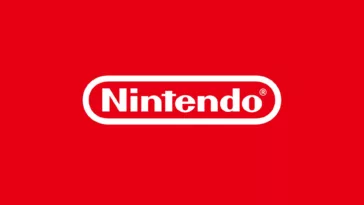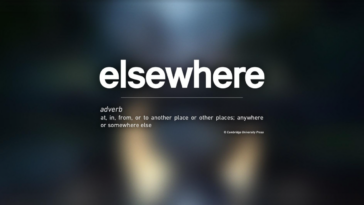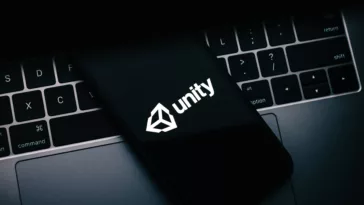Get ready, professionals! LinkedIn is breaking away from its traditional role as a purely career-focused network. The platform will soon unveil a suite of gaming features, a strategic move designed to increase user engagement and potentially add a thrilling competitive element to the realm of networking. Inspired by the massive success of Wordle and other puzzle-based games, LinkedIn's latest endeavor signals a bold new era for the platform.
TechCrunch broke the news of LinkedIn's gaming plans, revealing intriguing titles like "Queens," "Inference," and "Crossclimb." The real twist, according to code uncovered by app researchers, could be a ranking system based on employee scores – essentially turning career connections into a company-wide leaderboard.
While a LinkedIn spokesperson confirmed the gaming initiative, they playfully hinted at more surprises in store with a "Stay tuned for more!" The official launch date is still under wraps, but one thing's for sure – LinkedIn is serious about making connections and knowledge sharing a lot more interactive, even addictive.
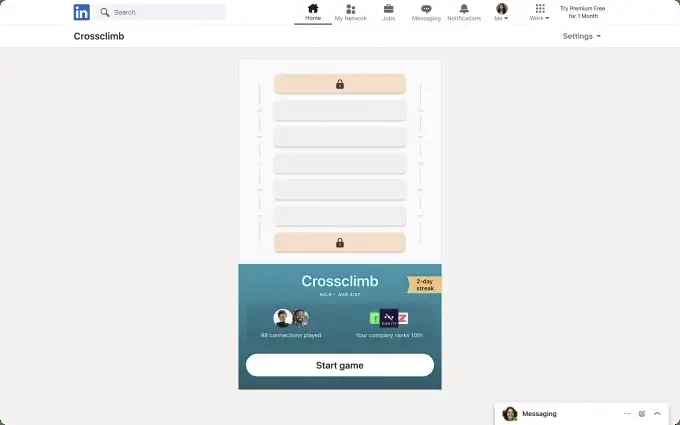
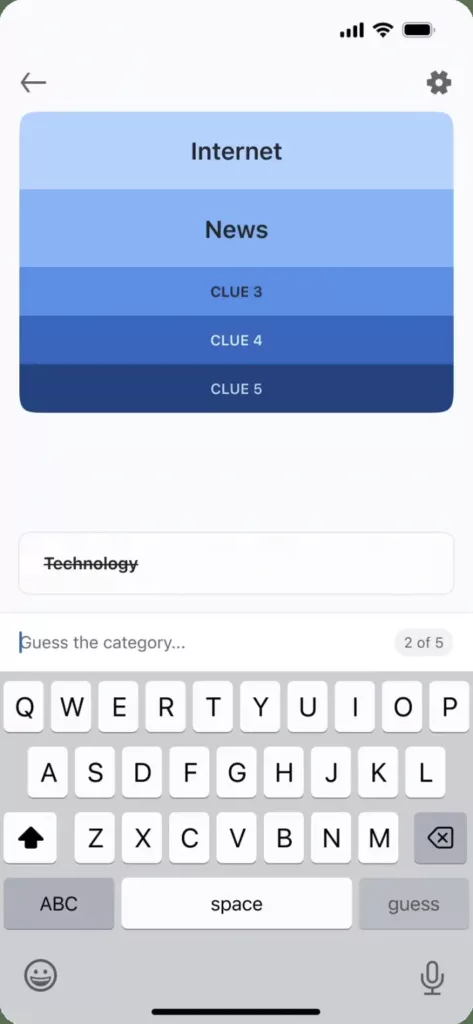
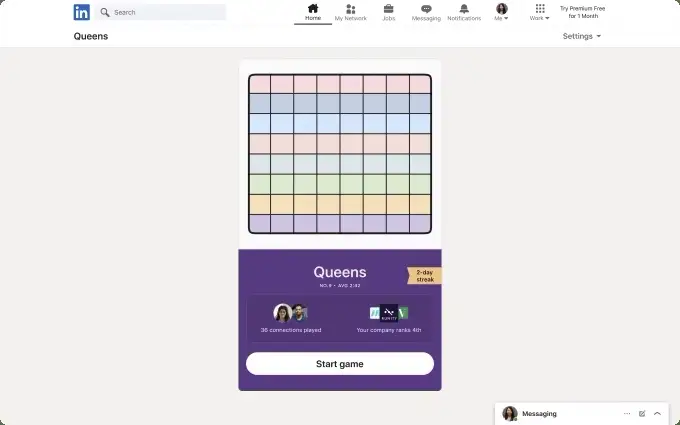
Microsoft's Influence and the Future of Professional Networking
Microsoft's status as a gaming titan makes LinkedIn's move even more fascinating. Could the parent company's expertise in gaming lead to deeper integration between LinkedIn and popular titles or a whole new kind of gaming experience within the platform? Only time will tell. Regardless, it's clear LinkedIn aims to capitalize on the widespread appeal of casual puzzle games, which perfectly align with a quick "coffee-break" style of engagement.
This venture marks a significant leap for LinkedIn, demonstrating a continuous desire to evolve beyond its core functionality. Remember, past initiatives include forays into online education, news, and even attracting content creators. Could gamification be the next step in revolutionizing how we connect and network on a professional level?
A Cautionary Tale: Tech Giants and Failed Gaming Ventures
While LinkedIn's gaming ambitions are intriguing, history offers a cautionary reminder that gamification isn't always a slam dunk, even for the biggest players in tech. Let's take a look at a few notable examples:
- YouTube: Remember YouTube Gaming, the platform's dedicated space for live streams and gaming content? Launched to compete with Twitch, it ultimately fizzled out, demonstrating that even Google's vast resources couldn't guarantee success in this arena.
- Facebook: Zynga's Farmville was once the poster child of social gaming, but Facebook's gaming hub has seen a steady decline in user engagement. The platform's focus has shifted towards Meta Quest and the promising world of mixed reality, signaling a retreat from traditional gaming formats.
- TikTok: Despite its immense popularity, TikTok's foray into mini-games within its app has garnered mixed results. While some titles gain traction, many quickly fade into obscurity, underscoring the fickle nature of mobile gaming trends.
LinkedIn's Unique Challenges
LinkedIn faces several unique challenges as it enters the gaming space:
- Target Audience: LinkedIn's core demographic primarily seeks professional development and networking opportunities. Will casual puzzle games align with their expectations and draw consistent engagement?
- Purpose and Distinction: Unlike platforms built around entertainment and leisure, LinkedIn is fundamentally linked to career objectives. How can it reconcile gamification with its professional image without alienating users who value a more serious environment?
- The Competition: Mobile app stores are overflowing with addictive puzzle games. To stand out, LinkedIn's offerings need exceptionally innovative mechanics and an undeniable "hook" that keeps professionals coming back, especially during work breaks.
Potential Paths to Success
Despite these challenges, LinkedIn could find a winning formula if it takes a strategic approach:
- Gamified Learning: Imagine interactive games disguised as skill assessments or training simulations. This could make LinkedIn an even more valuable resource for professional development.
- Networking with a Twist: Could LinkedIn develop games that facilitate meaningful connections in a playful way, perhaps replacing those awkward "ice-breaker" questions with a collaborative gaming experience?
Learning from the Innovators: Gaming Startups Redefining Recruitment
LinkedIn's foray into gaming invites us to examine existing models of success, particularly the work of innovative startups specifically focused on revolutionizing the hiring process through gamification. These startups are leveraging the power of games to assess a candidate's skills, personality, and cultural fit in a more engaging and insightful way than traditional resumes and interviews can provide. Imagine a game that simulates a collaborative project, revealing a candidate's teamwork abilities and communication style under pressure. Or, picture a puzzle-solving challenge that assesses critical thinking and creative problem-solving. By incorporating these elements, gaming assessments can provide employers with a richer, more well-rounded picture of a candidate's potential, potentially leading to better hiring decisions.
- Knack (knackapp.com): Knack goes beyond traditional resumes and interviews by offering game-like assessments that tap into a candidate's personality, cognitive skills, and problem-solving abilities in a fun and engaging way. These assessments can reveal strengths and weaknesses that might be overlooked in a traditional interview setting. Imagine a game that simulates a collaborative project, revealing a candidate's teamwork abilities and communication style under pressure. Or, picture a puzzle-solving challenge that assesses critical thinking and creative problem-solving. By incorporating these elements, Knack provides employers with a richer, more well-rounded picture of a candidate's potential.
- Scouticle (scouticle.com): Scouticle takes gamification a step further by utilizing artificial intelligence (AI) to create immersive games that go beyond simply assessing skills. These AI-powered games delve into a candidate's thought process, decision-making approach, and even cultural fit – all within the engaging environment of a well-designed game. Imagine a simulation where a candidate interacts with virtual colleagues, revealing their communication style, teamwork abilities, and how they handle conflict resolution. Scouticle's data-driven approach can then analyze this gameplay data, providing employers with a deeper understanding of whether a candidate would thrive within their specific company culture and work environment. This not only benefits employers by reducing the risk of bad hires, but also benefits candidates by matching them with companies that are a good fit for their personality and work style, potentially leading to greater job satisfaction and a more fulfilling career path.
LinkedIn's Opportunity: Gaming for Targeted Recruitment
The success of startups like Knack and Scouticle highlights a clear path for LinkedIn's gaming endeavors. Imagine the following scenarios:
- Skill-Based Mini-Games: LinkedIn could offer a library of short puzzle games designed to assess specific in-demand job skills, such as coding, data analysis, graphic design, and content marketing. These games could be timed or scored, with leaderboards showcasing top performers within a particular skill category or geographic region. High scores could be displayed prominently on a user's profile, attracting the attention of recruiters seeking qualified candidates. This gamified approach to skills assessment would not only benefit employers seeking top talent, but also provide valuable feedback to users, helping them identify areas where they excel and skills they might want to further develop. Imagine a data analysis game where users have to interpret charts and graphs to identify trends, or a coding challenge where users race against the clock to solve a complex algorithm. These engaging mini-games could not only assess technical skills but also reveal a candidate's problem-solving approach, critical thinking abilities, and even their ability to perform under pressure – all qualities that are highly sought after by employers.
- "Culture Fit" Challenges: LinkedIn could develop gamified assessments that go beyond technical skills and delve into a candidate's personality, communication style, and adaptability – all key factors in determining how well a candidate would fit within a particular company culture. These challenges could take the form of immersive simulations where candidates navigate virtual work scenarios, such as collaborating on a project with a team of colleagues or delivering a presentation to a group of stakeholders. The games could track a candidate's decision-making process, communication style, and how they handle pressure and conflict resolution. This data could then be analyzed to provide employers with a more well-rounded picture of a candidate's suitability for a specific role and company culture. For example, a game might simulate a brainstorming session where candidates must collaborate with virtual colleagues to develop a marketing campaign. The game would track factors such as communication style, teamwork abilities, and creative thinking. This data could then be used by employers to identify candidates who are a good fit for their collaborative and fast-paced work environment.
The Verdict
Whether LinkedIn will ultimately level up with gaming remains to be seen. The platform's professional focus creates both hurdles and unique opportunities. If done right, gamification could bring a fresh, engaging element to networking. However, if the execution falls short, it risks becoming a distraction diluting LinkedIn's core identity.
Let's Get the Conversation Started
Do you think this is a wise move for LinkedIn? Could gaming backfire, or is it a recipe for greater user engagement and fresh networking opportunities? Share your opinions in the comments below!


